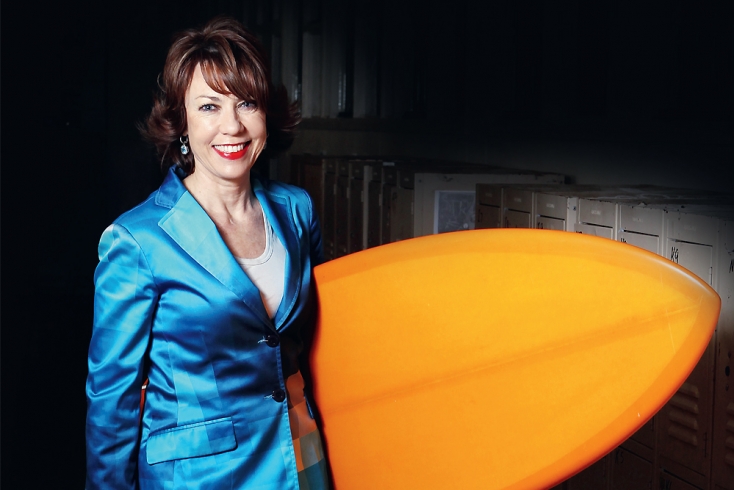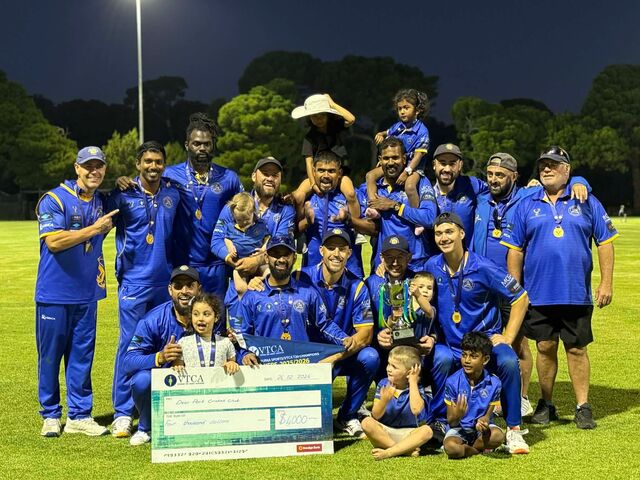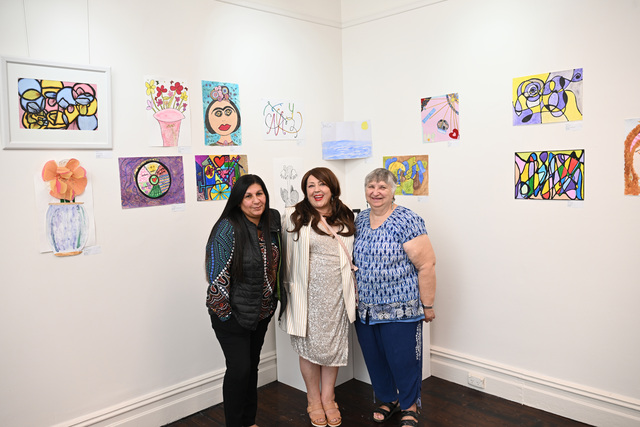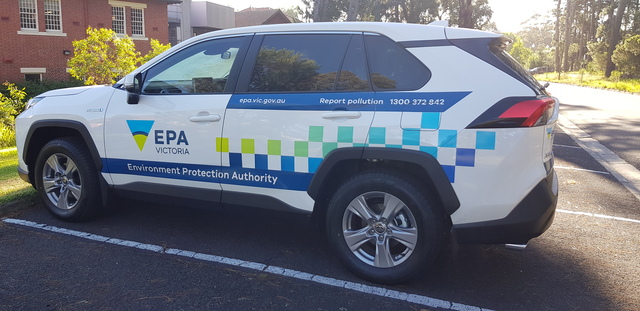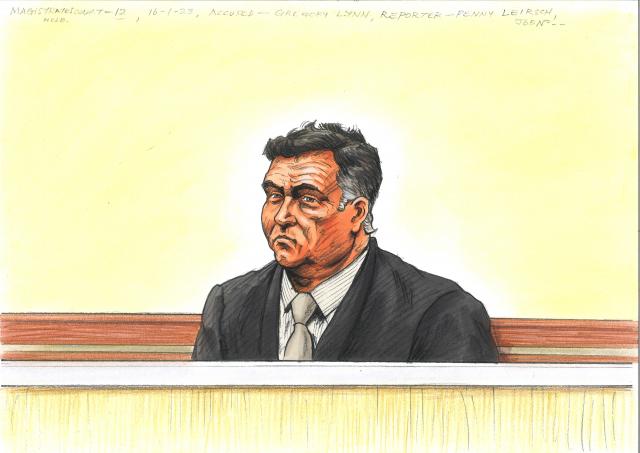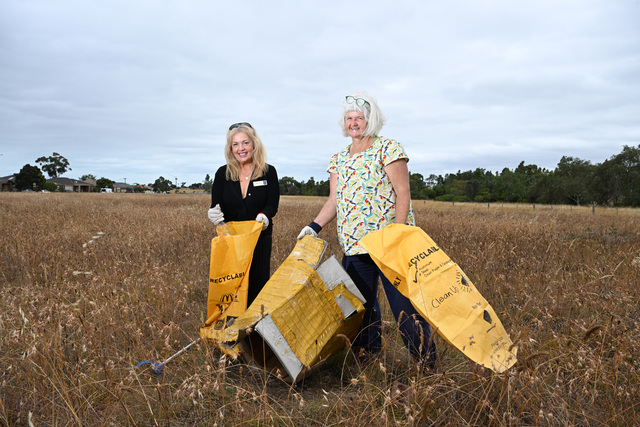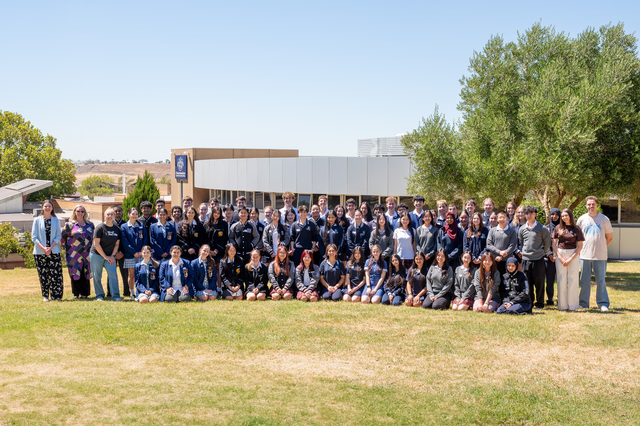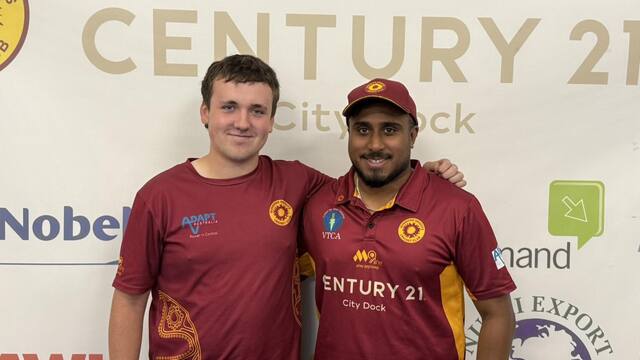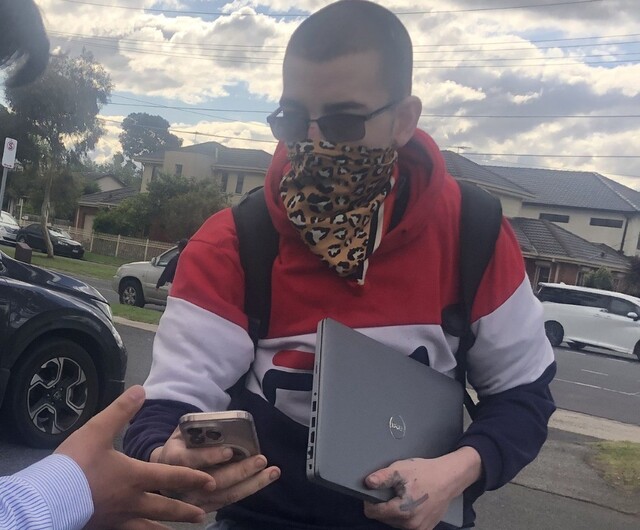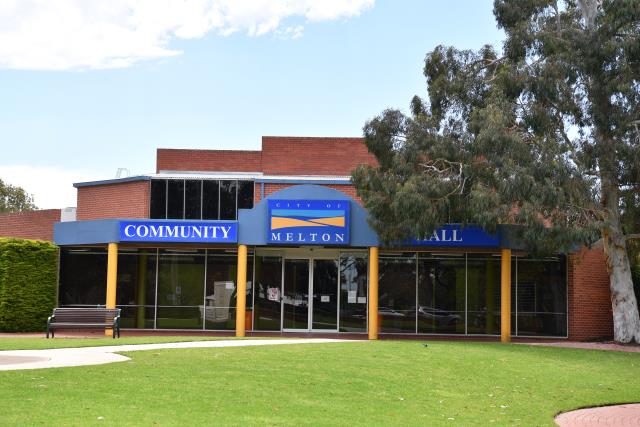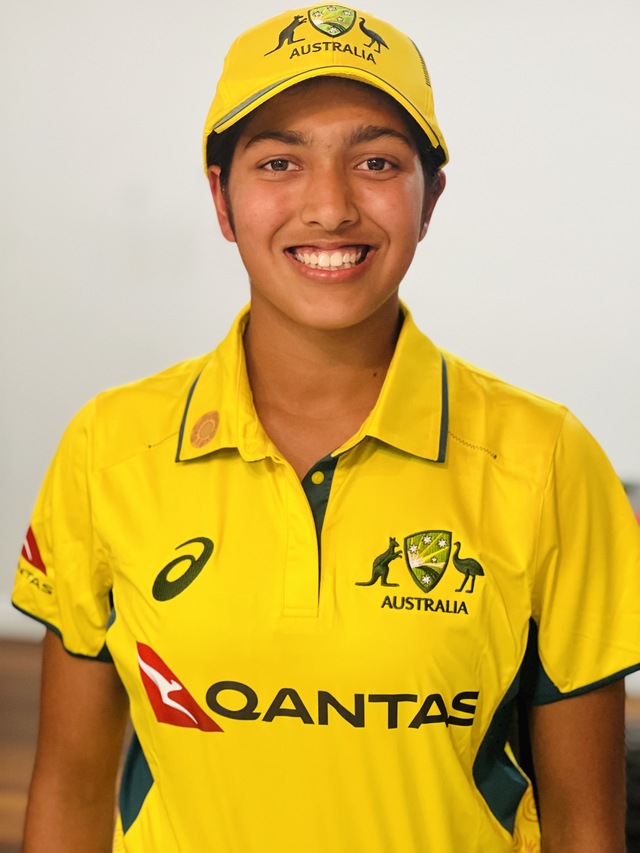Kathy Lette has forged a glittering career by being candid. As a bestselling author of 13 books – including the iconic ’70s novel Puberty Blues – she has covered everything from fidelity to hormones, toy boys to motherhood, divorce to silicone. Yet there has always been one off-limits topic: her eldest child, Julius Robertson.
When Julius was three years old, he was diagnosed with “high-functioning autism”, otherwise known as Asperger’s syndrome, a lifelong neurological condition that affects how the brain processes information – particularly reading social situations and non-verbal cues. Characteristics of Asperger’s can also include an exceptionally good memory, above-average intelligence, a very blunt and factual communication style, and an ability to focus deeply and obsessively on one subject.
Lette says from the moment she heard the paediatrician’s diagnosis, she made a conscious decision not to talk publicly about Julius’ condition.
“I didn’t want to invade his privacy,” says Lette on the phone from her home in London’s West Hampstead.
“I wanted his permission before I did talk about it, and I was incredibly nervous because, up until a couple of years ago, it was something people weren’t talking about. It was something you hid away if you had a child who was different.”
Now Lette has not only written a bestselling book on the subject, Asperger’s syndrome will also be the focus of her keynote address when she visits Melbourne next week for the University of Melbourne’s Festival of Ideas.
Lette, now 54, grew up in 1970s southern Sydney and achieved fame and notoriety as a teenager with her groundbreaking tell-all book about teen surf culture, Puberty Blues, which she co-wrote at 17 with Gabrielle Carey. The book’s cult status and Lette’s irrepressible chutzpah catapulted her into work as a columnist, TV presenter and writer on an American sitcom.
A chance meeting with human rights lawyer Geoffrey Robertson on his ABC TV show Hypothetical in 1989 swept her out of her marriage to future News Ltd boss Kim Williams and over to London, where she married Robertson and had two children (Julius, now 21, and Georgina, 19). She quickly immersed herself in London’s intellectual set, socialising with the likes of Salman Rushdie, John Mortimer and Douglas Adams.
Today, the writer known as Ms Quiplash for her razor-sharp wit, is neighbours with Stephen Fry and Barry Humphries, plays Scrabble with Kylie Minogue, attends red-carpet premieres with Billy Connolly, and calls Ruby Wax, Ronni Ancona, Maureen Lipman and Sandi Toksvig her “human Wonderbras”.
Yet despite the high-profile friends and public life, Lette didn’t start talking about Julius’ condition until last year, when he turned 21. The catalyst was her 12th fictional book, The Boy Who Fell to Earth. Originally penned as “another novel about the sex wars”, the book quickly manifested itself into a story about Lucy, a single mother trying to raise her autistic son, Merlin.
“It started pouring out at the end of my pen and I couldn’t stop writing it,” Lette says. “I thought, ‘Well, I’ll publish the book and not mention my son was on the autistic spectrum, and let the book stand on its own two literary legs’. But then a journalist in Sydney from The Australian Women’s Weekly said, ‘Isn’t it true you have a son with autism?’ And I thought, well I’m not going to lie because if I lie it will look like I’m embarrassed by Jules, and of course the opposite is true. I’m incredibly proud of him, so I asked him what to do.
“Jules loves the book and thinks it’s such a celebration of people like him. So with his love and support I very tentatively started talking about it. But I was a complete nervous wreck, because if you write comedy or satire for a living, that is your shield.”
Lette believes her speech next week on “Asparagus Syndrome” at the Melbourne Convention and Exhibition Centre will offer an opportunity to celebrate individuality. “There is no such thing as being normal and abnormal, there’s just ordinary and extraordinary,” she says. “For people who have a child on the autistic spectrum, it’s a bumpy ride. You need to fasten your psychological seatbelt, but it can also be a great joy and offer a different perspective on life, which can only be enriching.
“As well as being open about the harrowing and heartbreaking side of raising somebody different in a judgmental world, I also want to make it a celebration of their idiosyncrasies and eccentricities. Because, as my son always says, how boring would it be if we were all the same.
“He calls it a case of the bland leading the bland. As you can see he’s inherited my pun gene.”’
Lette is not the first author to use autism as a central theme in her fiction. Her exploration joins a long line of novels, including Mark Haddon’s bestselling The Curious Incident of the Dog in the Night-Time, Jodi Picoult’s House Rules, Kathryn Erskine’s Mockingbird, Lisa Genova’s Love Anthony and, most recently, Melbourne writer Graeme Simsion’s runaway success, The Rosie Project, whose protagonist, Don Tillman, shows many traits most commonly associated with Asperger’s syndrome.
“Don Tillman is a man who is better with ideas and projects and things than he is with emotions and people,” says Simsion, who recently returned from Los Angeles, where work has started on The Rosie Projectfilm script for Sony Pictures.
“I think most of us have known somebody like Don, and many of us have a little bit of Don in us … So many people have come up to me and said, ‘Oh he’s just like my brother’, or ‘my father-in-law’. They make that instant connection.”
The prevalence of children on the autistic spectrum has risen dramatically in the past five years. Before1980, one in 2000 children was thought to be autistic. By 2007, the Centres for Disease Control in Atlanta, US, was reporting that one in 152 American children had an autism spectrum disorder, such as Asperger’s syndrome. It now believes the figure is one in 88 children – or one in 54 if you count only boys, who are more susceptible than girls.
Professor Tony Attwood, at Brisbane’s Griffith University, is one of the world’s leading authorities on Asperger’s syndrome. He believes the increasing prevalence is mostly due to growing awareness, rather than a rise in incidence.
“I think the number has been there all the time; it’s just that now we’re able to identify the characteristics better of someone who is autistic,” he says.
Although Attwood says there are major differences on either end of the autistic spectrum, he firmly believes that every case needs support and guidance.
“I often use visual impairment as a metaphor,” he says. “There are those kids who are blind, and then there are those kids who need glasses. The ones who are blind, are blinded to the social world, and those who need glasses are the ones who can see it, they just need to read really big print. In other words, some kids need a bit of help making friends and understanding body language and socialising, whereas there are others where that’s impossible.”
Attwood first met Lette’s son when Julius was about 10. He says he is delighted at how well Julius has turned out, and describes Lette as being “lovely and wonderful”.
“I give all the credit to Kathy as she has brought Asperger’s through a medium she knows best and has been able to reach people in ways a professional can’t,” he says.
“Asperger’s brings out the best and worst. The best is people like Kathy, who are committed and supportive. And the worst are the school predators, who bully and tease people who are gullible, naive and vulnerable.”
Lette says those raising a child with high-functioning autism face similar challenges. There can be large periods of a day in which their behaviour is perfectly conventional, and then moments when it is not.
“It can be incredibly traumatising and distressing and difficult,” she says.
“What I worry about in this scramble for funding, is that [just because] people with autism don’t have a white stick and they don’t have a wheelchair, it doesn’t mean they don’t need our help and they’re not worthy of it.
“If you ask most mothers if you could cure it, they would, because as a mother it’s so painful to watch them suffering, and not understanding emotion, and misreading social situations. They torture themselves so much and their anxiety levels are often so high, it’s hard to try to cope.”
But, despite the challenges, Lette says there are many moments of joy. She talks about Julius’ amazing and insightful comments, and the importance of always having a sense of humour – even if it is “so black you need night-vision goggles just to see your way through it”.
One of Lette’s favourite stories is the time Hugh Jackman came over for dinner. While flirting outrageously with the Australian actor, Lette says she was soon interrupted by the arrival of Julius, who was 13.
“I said, ‘Look darling, you’re growing a moustache’,” she says. “He just scrutinised me, and said, ‘So are you, Mum, look at those hairs on your top lip and there are quite a few on your chin as well.’ I thought, is it too late to put him back in the condom-vending machine for
a refund? It was like my contraception arriving on a plate … You just never know when the grenades are going to go off.”
She also recalls the time she met former Conservative MP Ann Widdecombe – Lette is an avid Labour supporter – at a charity event in the British House of Commons. As she introduced Julius to Widdecombe, he said, “Oh you’re the one my mother says is two-faced, and if so why are you wearing that one that is all wrinkly and crinkly and old?”
Lette continues to champion the cause for autism. She is an ambassador for Britain’s National Autistic Society and a patron of British autism charity Anna Kennedy. She has also connected with other mothers of autistic children and receives dozens of letters and emails.
“When you’re a parent of a child with special needs, you do feel isolated a lot of the time,” she says. “I really wanted to let other parents know that you’re not alone and we all go through the stages.”
Even as we speak on the phone, Lette is interrupted by a friend seeking advice about schools for autistic children. She talks passionately about finding the right education, and how more than half of autistic teenagers are bullied at school.
“It was hard when Julius was a teenager, because all my friends’ children were going on gap years and down the Amazon and up the Himalayas and getting work experience at Vogue and top barrister chambers. And your heart just pours out because you think, your son will never leave home, or have a girlfriend, or do anything like that … But look at my son now: he’s got his own flat, he has a beautiful, gorgeous girlfriend and is starting college. You just have to put trainer wheels on them.”
SEE: The Festival of Ideas 2013, presented by the University of Melbourne, will run from October 1-6. Speakers from around the world will explore whether it is possible to sustain a healthy society and planet by 2050. Entry is free. On October 4, Kathy Lette will headline discussions about Families and Culture in a Changing World. Later that night, she will deliver a keynote address on “Asparagus Syndrome’’ at the Melbourne Convention and Exhibition Centre.

